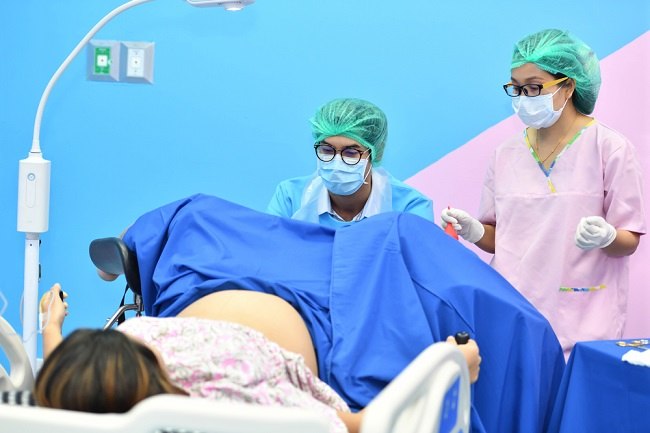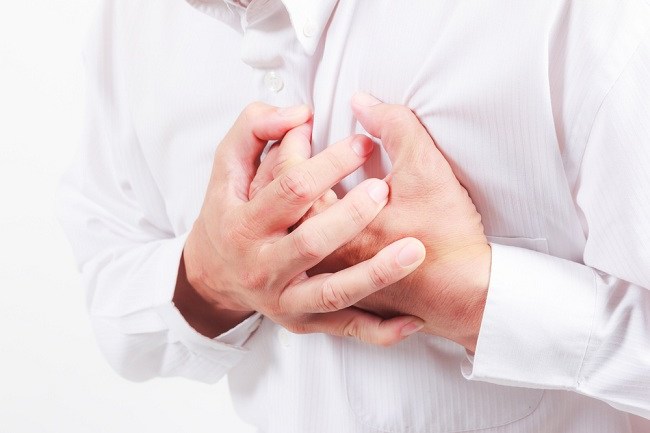Dermatologists and veterinarians are specialist doctors who treat various complaints and health problems related to skin and genitals. His educational background is a general practitioner who has completed specialist education in the field of skin and genital health.
To obtain the title of skin and venereal specialist (SpKK), a doctor must study skin and venereal health study program for 7 semesters, and a maximum of 11 semesters. Dermatology and venereology is a science that studies the knowledge and skills of clinical diagnostics and treatment (medical and skin surgery). Dermatologists and venereal specialists treat skin (including hair and nail) and genital diseases, both in adults, children, and the elderly.

Dermatology and Venereology
Clinically, the fields of dermatology and venereology are divided into several divisions, including:
- Tropical infectious dermatologyThis field focuses on the prevention of skin infections in the tropics. Some examples of diseases studied and treated by dermatologists and venereal specialists related to tropical infectious dermatology are cellulitis, erysipelas (infection of the skin surface caused by germs). Streptococcus), and fungal infections such as ringworm and candidiasis.
- Pediatric DermatologyThis field focuses on treating skin and venereal diseases in children. Dermatologists and venereal specialists, subspecialty in pediatric dermatology, treat disorders such as birthmarks and hemangiomas in children, allergy-related skin diseases in children, genetic skin diseases such as ichthyosis and epidermolysis, treatment of skin diseases in infants and children, skin disorders due to malnutrition, skin infections. in children, and skin disorders in newborns acquired during pregnancy or delivery of the mother.
- Cosmetic DermatologyThis field focuses on treating skin beauty problems, such as scars, hair loss, to skin changes due to age. Dermatologist and subspecialist in cosmetic dermatology also treat skin pigmentation disorders, hyperhidrosis osmidrosis, fat deposits and cellulite, hair disorders, baldness and hypertrichosis (hair growth disorders), cosmetic nail disorders, and those related to the aging process.
- Allergic dermatology and immunologyThis field focuses on treating skin diseases related to allergies and immune system disorders. Dermatologist and gynecologist, subspecialist in allergic dermatology and immunology, treats atopic dermatitis, allergic contact dermatitis, psoriasis (a chronic inflammatory skin disease), uticaria (hives), angioedema (swollen inner layer of skin due to fluid buildup), irritant contact dermatitis, and other diseases. skin due to autoimmune disorders.
- Geriatric DermatologyThis field specializes in dealing with various complaints or skin and genital problems in the elderly. Dermatologist, subspecialist in geriatric dermatology, treats diseases such as pruritus, skin disorders due to aging and chronic sun exposure such as senile lentigo and elastosis solaris (skin looks yellow and thickened due to sunlight), skin infections in the elderly, skin disorders that often occur in children. aging processes such as asteatotic dermatitis, and Favre-Racouchot syndrome.
- Tumors and skin surgeryThis field focuses on diagnostic procedures and treatment of tumors or skin cancer, and skin surgical procedures. Some of the diseases commonly treated by dermatologists and venereal surgeons specializing in tumors and skin surgery are skin cancers such as melanoma, basal and squamous cell carcinomas, various benign tumors of the skin, precancerous diseases such as Bowen's disease (malignant benign skin cancer) and leukoplakia.
- Sexually transmitted diseaseThis field focuses on treating sexually transmitted diseases. Sexually transmitted diseases (STD) subspecialists, also known as sexually transmitted infections (STIs), treat STDs caused by bacteria such as gonorrhea, syphilis, bacterial vaginosis; caused by viruses such as genital herpes; STDs caused by fungi and parasites such as pediculosis pubis (pubic hair lice) and vaginal candidosis.
Diseases Treated by Dermatologists and Venereologists
The following are some of the diseases treated by skin and venereal specialists, including:
- Skin disorders due to allergies and immune system disorders, such as nummular dermatitis, seborrheic dermatitis, psoriasis, lichen planus, pityriasis rosea, erythema, atopic dermatitis, allergic contact dermatitis, allergic reactions, for example drug allergies such as in Stevens-Johnson syndrome, and lupus erythematosus discoid.
- Infectious skin diseases, such as viral infections (herpes, warts, and herpes zoster), bacterial infections (impetigo, cellulitis, and leprosy), fungal infections of the skin, and parasitic infections of the skin such as head lice and scabies.
- Disorders of formation and keratinization of the epidermis, such as Keratosis Pilaris and Porokeratosis (diseases caused by keratinization or accumulation of keratin in the skin).
- Tumors and skin cancer.
- Skin pigmentation disorders, such as vitiligo.
- Oil (sebum) and sweat gland disorders, such as milaria (prickly heat), chromhidrosis, localized hyperhidrosis, and acne.
- Skin disorders due to chemical, physical and radiation factors, such as cold trauma, 1st and 2nd degree burns.
- Skin disorders related to neurological and mental disorders, such as neurodermatitis.
- Skin disorders due to metabolic and hereditary nutritional problems, such as porphyria and amyloidosis.
- Sexually transmitted disease.
Medical Actions a Dermatologist and Venereologist Can Perform
Based on the competency standards of dermatology and venereology clinic skills, here are some clinical actions or powers of dermatologists and venereal specialists:
- The basic examination includes taking a medical history or conducting a medical interview and a physical examination of the skin and genital organs. After the diagnosis is determined, the dermatologist can provide treatment according to the patient's diagnosis and condition.
- Investigations include interpreting the results of skin investigations such as skin scrapings to detect fungi, bacteria or parasites; clinical examination specifically for allergy tests or skin tests such as prick tests, patch tests, to intradermal tests; and dermatopathology to diagnose skin diseases through examination of skin tissue with a microscope.
- Cosmetic interventional dermatology, including comedone extraction, corticosteroid injections, chemical surgery, botox, sclerotherapy, microdermabrasion, and hair removal; the use of lasers and light and energy-based devices such as pigment lasers and vascular lasers; phototherapy that includes UVA and UVB.
- Dermatology interventional skin surgery, including local anesthesia, frozen surgery, electrosurgery, scar repair, skin surgery for emergencies, wound care and complications of skin surgery.
When to see a dermatologist and gynecologist?
You can see a dermatologist and genital specialist either with a referral from a general practitioner or come directly to this specialist doctor's polyclinic. Various symptoms that you suspect are associated with skin and venereal diseases should immediately be checked by a dermatologist and venereal. You can also consult a variety of treatments for skin and genital health.
Here's a list of problems that dermatologists and gynecologists treat:
- Itchy skin, sore skin, numb skin, discolored skin (to white, black, red, or yellow), dry skin, oily skin, thickened skin, thinning skin, scaly skin, blisters, sores and ulcers, purulent skin, blisters, bumps appear on the skin.
- Nail pain, nail changes color or shape.
- Hair dandruff, hair loss and baldness.
- Skin rash.
- Ulcers or sores on the anus and genitals.
- Lumps in the genital area, pain in the genitals, itching in the genitals, genital odor, genital rash.
- Pain when urinating.
- Pain during sex.
- Abnormal discharge from the cavity of the genital organs.
Preparation for Consultation with a Dermatologist and Venereologist
Before seeing a dermatologist and genital specialist, you should prepare the following things:
- Prepare a note of the questions you want to ask and a history of complaints or symptoms you are experiencing.
- Don't forget to bring a complete identity card and if you have one, also bring some supporting documents related to the examinations you did previously, for example the results of blood tests, X-rays, or CT scan.
- Also inform about medications and supplements that you are currently taking, as well as allergic reactions to certain drugs or substances if any.
- Make sure your facial skin is clean of cosmetics when you see a dermatologist and gynecologist. This will help the doctor see the condition of your skin accurately.
- Make sure you see a qualified dermatologist and gynecologist. You can ask for recommendations from the doctor who examined you, or from relatives. Make sure the doctor you choose is able to communicate well in explaining the disease and the treatment steps you need.
- Make sure the facilities and services have a good, complete and friendly image.
- If you want to take advantage of BPJS or your insurance, make sure the hospital is affiliated with BPJS or your insurance provider.









